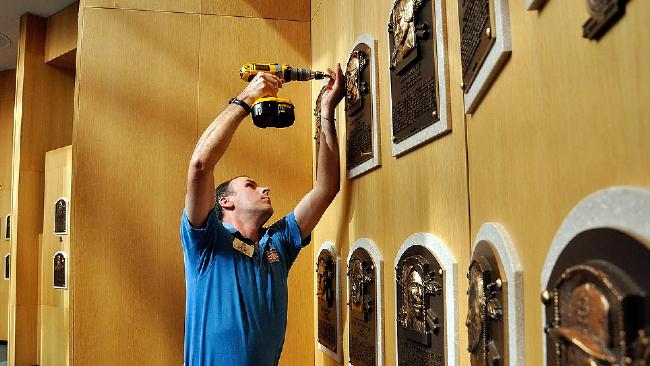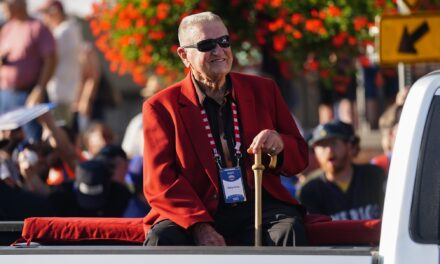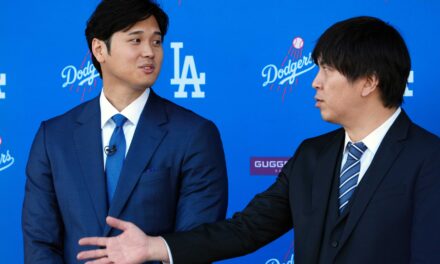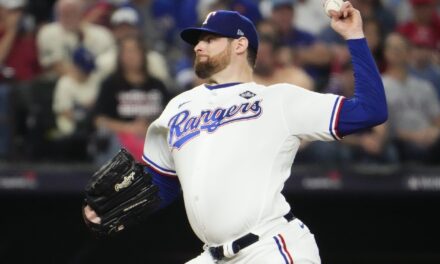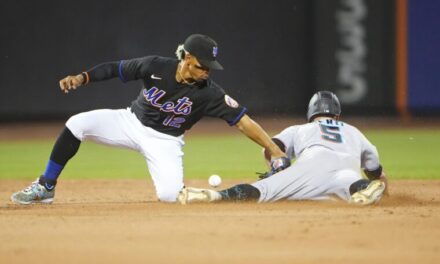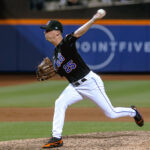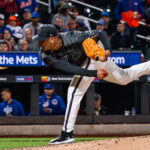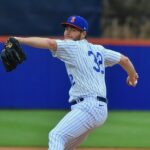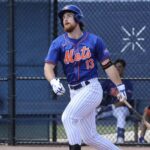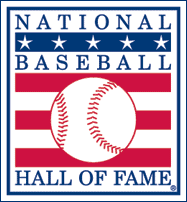
The Hall of Fame debate to me these days is less about who is deserving and more about why they should or shouldn’t be disqualified. For several years now, each new candidate comes with their own set of speculations as opposed to qualifications. Every candidate that played in the steroid era will always have suspicion or doubt cast upon them, warranted or not
This is one of the two things that bug me the most about voting for the Hall of Fame. Not the mistrust per se, but the fact that there are still no firm rules about how to handle it. The Hall of Fame and MLB are shirking their responsibilities as far as I’m concerned. Baseball needs to decide how to handle the statistics of those who either tested positive or admitted to it later in life. Their punishment for active players are doing a decent job deterring players, but there’s been no ruling on how those players should be viewed in the pantheon of the greatest game in history in retrospect. The Hall of Fame doesn’t get a pass, either. They don’t seem to have come forward with their bottom line, either.
The problem I have with this is that they are the respective governing bodies of this process. Their opinion is what it is and I’m not so much concerned with whatever ruling they might make, I just need them to make one. In avoiding the tough questions, they are forcing the BBWAA to make the decisions they should be making and that’s not right or fair. Each member has their own opinions, but in forcing them to make their own determination, you’re creating a subjective platform for enshrinement, and let’s face it, statistics are subjective enough.
Our own John Delcos (he actually has a vote; my ballot is fake as I do not) took his stand on how to handle players linked to steroids in the explanation of his ballot and he has every right to take that stand. The issue I have is that someone else with a vote will have a different stand and for all we know there are 580+ different stances. This is where the inaction of MLB and the Hall of Fame fails the election process.
So I have a stand of my own. My stance is that I’m not taking one. So as long as both the MLB and the Hall of Fame recognizes Barry Bonds as the all-time home run king, then so will I. It’s not fair that they force the voters to make their decisions for them.
The second problem I have is the limit of ten. This is silly and archaic. The rule has been in place since 1936, when there were a total of 16 teams and minorities weren’t allowed to play. To put it mildly, the pool is much larger now. So the biggest issue for me in putting together my fake ballot is not who is deserving, but which ten would get my vote. To help with this, I split the candidates into two categories. The first category is for all time players. The game’s greats who would have dominated in any era they played. The second category is for players who dominated their era. I’m very much in favor of enshrinement for meeting this criterion because the game has changed so drastically over the years.
So with all that said, here’s my fake ballot:
Column One Column Two
Barry Bonds Tim Raines
I don’t suppose I have to explain Column One. Those guys are the very best to ever play and with my stance that so long as every number they put up are still deemed official by MLB and the HOF, then they warrant enshrinement.
Column Two could be debated, so here goes:
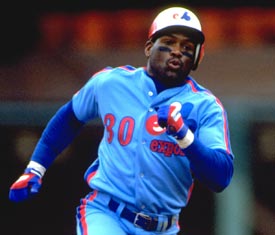 Raines was an outstanding hitter in an era not known for offense. He was a better base stealer than Rickey Henderson. In point of fact, The Man of Steal would have to come back to baseball and swipe 448 consecutive bases without being thrown out just to achieve Raines’s success rate. Another way to look at it is this: if Raines had attempted as many steals as Henderson did while still maintaining his success rate, he’d steal 1475 bases, eclipsing Rickey’s record. From his 1983-1993, among players who qualified each of those years, Raines had the third best wRC+ in all of baseball. He had the sixth best batting average, third best on base percentage and the 25th best slugging percentage despite being a leadoff hitter for the majority.
Raines was an outstanding hitter in an era not known for offense. He was a better base stealer than Rickey Henderson. In point of fact, The Man of Steal would have to come back to baseball and swipe 448 consecutive bases without being thrown out just to achieve Raines’s success rate. Another way to look at it is this: if Raines had attempted as many steals as Henderson did while still maintaining his success rate, he’d steal 1475 bases, eclipsing Rickey’s record. From his 1983-1993, among players who qualified each of those years, Raines had the third best wRC+ in all of baseball. He had the sixth best batting average, third best on base percentage and the 25th best slugging percentage despite being a leadoff hitter for the majority.
Martinez has the DH bias working against him, but the DH has been an official position in the game for over 40 years. So my answer to those who leave DHs off their ballot is: get over it. Not to mention there are some absolute butchers already enshrined because of their offensive prowess. There’s a very real argument to be made that Martinez was more valuable to the Mariners by NOT playing the field than some HOFers were to their teams by costing them runs in the field. Between 1990-2003, among players who qualified each of those years, Martinez ranks third in wRC+, and has the highest batting average, the third highest OBP and the ninth-best SLG%.
Biggio’s detractors say that his best attribute was longevity. True, he didn’t dominate in any one specific facet of the game statistically, but the longevity bit is misleading. Biggio played twenty seasons. That’s not unheard of at all. No one in the 3,000 hit club played fewer than twenty seasons, so why are we penalizing Biggio for it? I also believe there’s a lot of inherent value in doing everything really well for a really long time. I don’t necessarily vote for him because of the magic number of 3,000 hits, but part of his credentials is how he got there. Is a player who potentially had ten great, what we call “Hall of Fame” seasons and ten average ones better or more valuable than Biggio, who played “just” really well for twenty seasons if the final results are the same? Biggio gets my vote.
 Lastly, Mussina. Mussina’s numbers are somewhat like Biggio’s in that there wasn’t one thing he did particularly better than anyone else, just a lot of really, really good seasons. For example, from 1992-2008, Mussina’s full time career, he’s seventh in ERA, sixth in FIP and fifth in xFIP among pitchers who qualified each of those years, all while pitching in some homer-friendly parks against some of the game’s best offenses. Two more seasons would have given him the automatic nod because he would have reached the magic totals for wins and strikeouts, but he chose to leave the game on his terms. Personally, one of my favorite stats, which is neither here nor there re: his HOF candidacy, is that since balk records have been kept in 1974, no one with a minimum of 2,500 innings pitched has had fewer balks than Mussina, who has 3,562.2 innings pitched. In his entire career, Mussina balked only one time
Lastly, Mussina. Mussina’s numbers are somewhat like Biggio’s in that there wasn’t one thing he did particularly better than anyone else, just a lot of really, really good seasons. For example, from 1992-2008, Mussina’s full time career, he’s seventh in ERA, sixth in FIP and fifth in xFIP among pitchers who qualified each of those years, all while pitching in some homer-friendly parks against some of the game’s best offenses. Two more seasons would have given him the automatic nod because he would have reached the magic totals for wins and strikeouts, but he chose to leave the game on his terms. Personally, one of my favorite stats, which is neither here nor there re: his HOF candidacy, is that since balk records have been kept in 1974, no one with a minimum of 2,500 innings pitched has had fewer balks than Mussina, who has 3,562.2 innings pitched. In his entire career, Mussina balked only one time
Those are my ten, which means I did not vote for Larry Walker, Gary Sheffield, Curt Schilling and John Smoltz, all of whom are worthy of enshrinement. The rule of ten couldn’t be thrown out soon enough.


